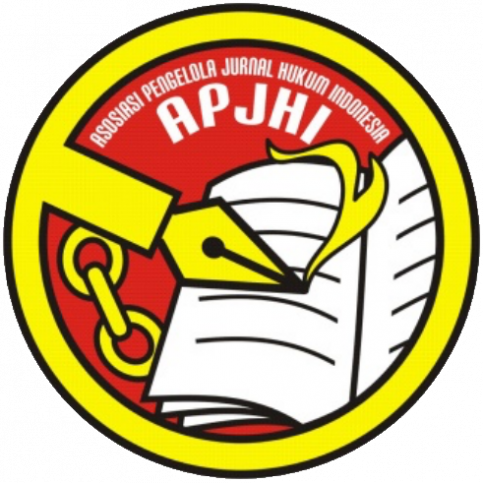CORPORATE CRIMINAL LIABILITY
Abstract
Abstract The evolution perspective that place person, not the only one criminal law subject, but also corporations, has ignored the principle “Universitas delinquent non potest” which has been used as a reason that corporations that commit the crime cannot be stated as perpetrators of crime, and shift into perspective that corporations can be stated as criminal law subject. Indonesia has recognized corporations as perpetrators of crime. This can be proven by the existence of corporate arrangements as perpetrators of criminal acts in various laws and regulations in Indonesia outside the Criminal Code. However, despite the recognition that corporations are subject to criminal law, in reality, we see that there are still many criminal acts involving corporations that do not direct corporations to become suspects in the judicial process. This would be a problem for law enforcement in Indonesia. With the recognition of the corporation as the subject of a criminal act, then it is important to criminalize not only the board but also related corporations. If corporate not addressed as criminal, therefore, the purpose of punishment will be different if the criminal is only addressed to administrators but not to the corporation. In general, the charging of criminal is the purpose as a deterrent effect against the corporation who committed the crime and also, also as an effort to prevent the criminal act is not performed by the other corporations. Associated with given criminal purposes, if only the criminal responsibility on the corporate board of sentencing objectives to be achieved will be difficult to achieve. It would be important to not only penalize the corporate board but also still penalize the corporation concerned
Keywords: Corporate, criminal liability, criminal
Full Text:
PDFReferences
Amrullah, A. (2018). Perkembangan Kejahatan Korporasi. Prenada Media.
Elfina Lebrine, S. (2010). Pengaruh Etika Bisnis Terhadap Kejahatan Korporasi dalam Lingkup
Kejahatan Bisnis. Jurnal Laboratorium Hukum Pidana Universitas Surabaya, Hal, 63.
Krismen, Y. (2014). Pertanggungjawaban Pidana Korporasi Dalam Kejahatan Ekonomi. Jurnal
Ilmu Hukum, 5(1), 61–70.
Manullang, H. (2020). Pertanggungjawaban Pidana Korporasi.
Reksodiputro, M. (2007). Pertanggungjawaban Pidana Korporasi dalam Tindak Pidana Korporasi,
dalam Kemajuan Pembangunan Ekonomi dan Kejahatan Kumpulan Karangan Buku Kesatu.
Pusat Pelayanan Keadilan dan Pengabdian Hukum. Jakarta.
Saputra, R. (2015). Pertanggungjawaban Pidana Korporasi Dalam Tindak Pidana Korupsi
(Bentuk Tindak Pidana Korupsi yang Merugikan Keuangan Negara Terutama Terkait
Dengan Pasal 2 Ayat (1) UU PTPK). Jurnal Cita Hukum, 3(2), 269–288.
Sjahdeini, S. R. (2017). Ajaran Pemidanaan: Tindak Pidana Korporasi dan Seluk-Beluknya.
Kencana.
Sjawie, H. F. (2018). Pertanggungjawaban Pidana Korporasi pada TIPIKOR. Prenada Media.
Suhariyanto, B. (2016). Progresivitas Putusan Pemidanaan Terhadap Korporasi Pelaku Tindak
Pidana Korupsi (Progressivity Of Criminal Decision On Corporate Actors Corruption).
Jurnal Penelitian Hukum De Jure, 16(2), 201–213.
DOI: http://dx.doi.org/10.31000/jhr.v8i2.3586
Article Metrics
Abstract - 1986 PDF - 851Refbacks
- There are currently no refbacks.

This work is licensed under a Creative Commons Attribution-ShareAlike 4.0 International License.

